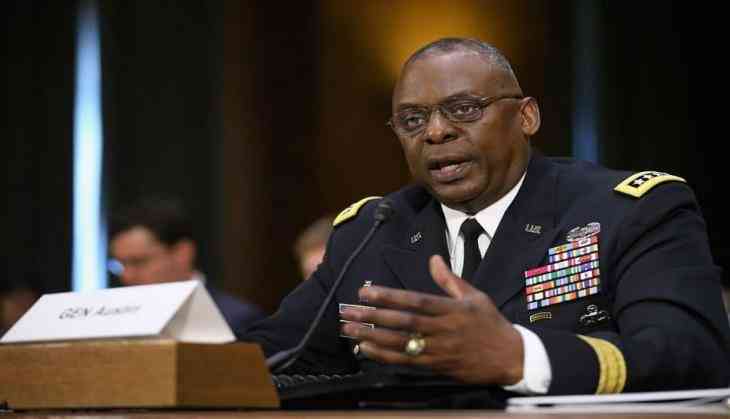
US Secretary of Defense Lloyd Austin on Saturday termed India 'to be a great partner'. He also stated that the two countries are promoting peace and stability in the region and providing for a free and open Indo-Pacific region.
Stating that there was a lot of opportunities to strengthen the partnership between the two nations. "We consider India to be a great partner and again I think we have done a number of things to work well together. There's just a lot of opportunity there to strengthen that partnership and to do some things, additional things to make sure that we're promoting peace and stability in the region and providing for a free and open Indo-Pacific region, as well," he said at a press conference in New Delhi.
"We covered a wide range of topics that included equipment. It also included information sharing; it included additional opportunities for assisting each other logistically and just a number of things. And those were really, really good conversations," added Austin.
Regarding India and US cooperation to counter Chinese aggression, Austin said, "I think -- I think that continuing to work with like-minded countries as we are working with India, we are working with Australia, Japan and others in the region to ensure that we maintain a freedom of navigation that we do -- we're doing the right things to promote peace and stability in the region and that we really work together to ensure a free and open Indo-Pacific region."
While answering about sanction on Indian agreement with Russia to purchase S-400 Missile Defence System, US Secretary of Defense stated, "There has -- there has been no delivery of an S-400 system. And so that conversation -- the issues of sanctions is not one that's been discussed."
Talking on engagement with a multilateral group like Quadrilateral Security Dialogue (Quad) and Association of Southeast Asian Nations (ASEAN), Austin shared, "Yes, I, clearly from a defense perspective, we do have a number of things in common, and if you just look at the countries overall, if you look at Australia, India, Japan, us, you know we really are interested in maintaining a free and open Indo-Pacific region. We're interested in being able to navigate the seas and fly the skies and international space and maintain that degree of flexibility. "
"Now if you look at the fact that India and us are the largest democracies in the world. There's clearly some shared values there that we'll continue work together to -- we can build upon that and we are building upon it in economic interest. So there are a number of things that we can and will work on going forward, he added.
While answering over the expansion of Quad to include countries like South Korea and Australia becoming a permanent member of the Malabar exercise, he said, "I -- from our perspective we're always willing to work with countries who share our values and have like goals and aspirations. And so whether or not those countries will choose to align with the United States and others is up to them."
He also discussed mutual agreements in terms of increasing interoperability, more exercises, frequent exchanges in the Indo-Pacific in order to build great capacity, greater capability.
Indo-Pacific region is largely viewed as an area comprising the Indian Ocean and the western and central Pacific Ocean, including the South China Sea. China's territorial claims in the South China Sea and its efforts to advance into the Indian Ocean are seen to have challenged the established rules-based system.
Austin, who arrived in Delhi earlier on Friday, is on a three-day official visit to the country. It is the first visit to India by a top official of the Biden administration.
(ANI)
Also Read: US, Canada begin joint week-long Arctic Air Defense Drills


